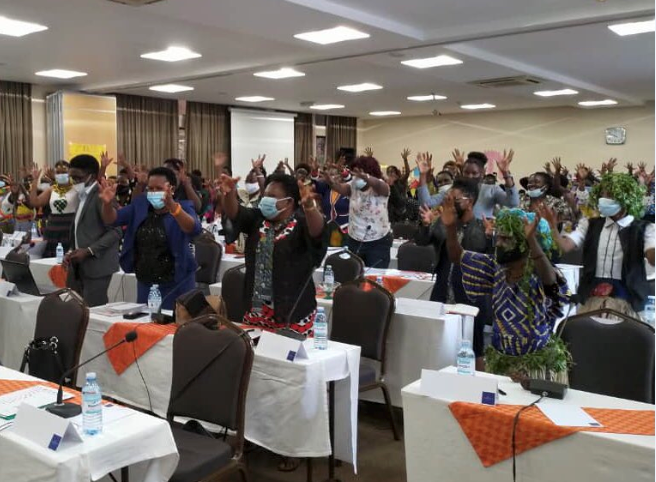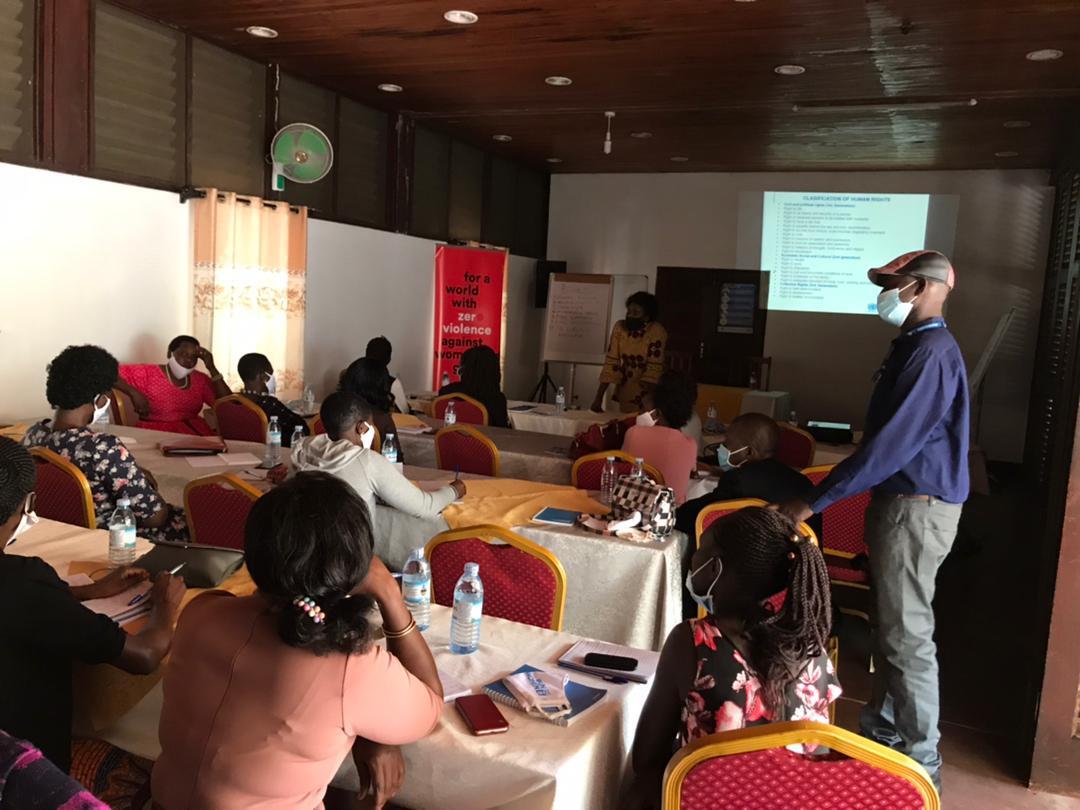As the world commemorated the International day for women human rights defenders on 29th November 2021, Women Human Rights Defenders Network Uganda (WHRDN-U) jointly with UN Women, oriented this year’s campaign and launched the safety guidelines as move to strengthen the protection women human rights defenders against violence.
Speaking at the launch at Protea Hotel, Ms. Anna Marrifield, the Deputy Ambassador European Union Delegation to Uganda and the chief guest, appreciated all women human rights defenders for not giving up amidst the challenges they face while executing their work. She urged women human rights defenders to take note of these guidelines and use them for self-protection against violence. She appealed to the policymakers of Uganda to consider these guidelines in the 11th Parliament

While presenting the safety guidelines, Ms. Nakaweesi Solome, a Pan-African feminist, who took a lead role in developing these safety guidelines, thanked WHRDN-U, UN Women, and other partners for the great work in the protection of women human rights defender. “We took time to consult women human rights defenders from four regions of Uganda, that is North, South, East and West. Some of these women are here with us, thank you for providing us with the information which led to the compilation of these safety guidelines”. Ms. Nakaweesi revealed.

The Executive Director of WHRDN-U, Ms. Kugonza Brenda, in her remarks, called for an urgent need to end gender-based violence among women human rights defenders, revealing that most of them have been arrested, beaten, discriminated, sexually assaulted, and cyber harassed, which has made their work difficult. She called upon women human rights defenders to pay attention to self-protection and committed herself to leading the network in the implementation the safety guidelines.

During the inspirational experience session, Ms. Edreda Dingolo, a defender for the Batwa tribe in Bundibudyo district, called for the protection of ancestral land and unique violence against Batwa women and girls. “There is a stereotype in our community that you can cure yourself of HIV by sleeping with a woman from Batwa, so we are often raped. She added. Ms. Halima Nalongo a defender for land, environmental, oil and extractives, also expressed her concerns on the rising threats and arrests among women working in salt industry related to land grabbing and access to justice in her region.

Mr. Thomas, a representative from EU Delegation to Uganda, who officially launched the safety guidelines, in his remarks, thanked WHRDN-U, UN Women, and other partners for initiating these guidelines and encouraged women human rights defenders to use of them.

ABOUT THE SAFETY AND SECURITY GUIDELINES FOR WOMEN HUMAN RIGHTS DEFENDERS
The guidelines offer practical tips for online and offline safety measures that will enable women human rights defenders at different levels to mitigate risks and attacks of violence in their work. These include; creating support spaces at district and regional levels, alliance building with like-minded actors, reporting and exposing perpetrators, creating legal frameworks, group movements, self-care and wellness, confidentiality and responsible use of internet among others. Key implementers of these guidelines including UN Women, WHRDN-U, and OHCHR will make them accessible on their websites, workshops, briefings and webinar to support the effective utilisation of these guidelines.




